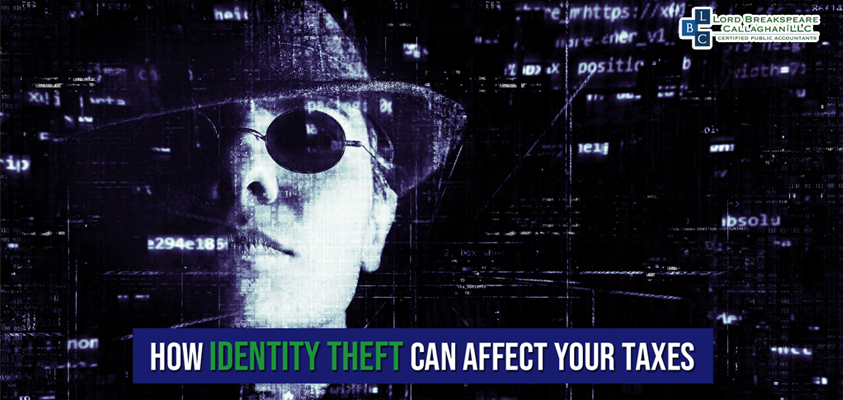LBCPA News 
Click here to go back
— HOW IDENTITY THEFT CAN AFFECT YOUR TAXES

Tax-related identity theft normally occurs when someone uses your stolen Social Security number to file a tax return claiming a fraudulent refund. Many people first find out about it when they do their taxes.
The IRS is working hard to stop identity theft with a strategy of prevention, detection and victim assistance. Here are nine key points:
- Taxes. Security. Together. The IRS, the states and the tax industry need your help. We can’t fight identity theft alone. The Taxes. Security. Together. awareness campaign is an effort to better inform you about the need to protect your personal, tax and financial data online and at home.
- Protect your Records. Keep your Social Security card at home and not in your wallet or purse. Only provide your Social Security number if it’s absolutely necessary. Protect your personal information at home and protect your computers with anti-spam and anti-virus software. Routinely change passwords for internet accounts.
- Don’t Fall for Scams. Criminals often try to impersonate your bank, your credit card company, even the IRS in order to steal your personal data. Learn to recognize and avoid those fake emails and texts. Also, the IRS will not call you threatening a lawsuit, arrest or to demand an immediate tax payment. Normal correspondence is a letter in the mail. Beware of threatening phone calls from someone claiming to be from the IRS.
- Report Tax-Related ID Theft to the IRS. If you cannot e-file your return because a tax return already was filed using your SSN, consider the following steps: • File your taxes by paper and pay any taxes owed. • File an IRS Form 14039 Identity Theft Affidavit. Print the form and mail or fax it according to the instructions. You may include it with your paper return. • File a report with the Federal Trade Commission using the FTC Complaint Assistant; • Contact one of the three credit bureaus so they can place a fraud alert or credit freeze on your account;
- IRS Letters. If the IRS identifies a suspicious tax return with your SSN, it may send you a letter asking you to verify your identity by calling a special number or visiting a Taxpayer Assistance Center. This is to protect you from tax-related identity theft.
- IP PIN. If you are a confirmed ID theft victim, the IRS may issue an IP PIN. The IP PIN is a unique six-digit number that you will use to e-file your tax return. Each year, you will receive an IRS letter with a new IP PIN.
- Report Suspicious Activity. If you suspect or know of an individual or business that is committing tax fraud, you can visit IRS.gov and follow the chart on How to Report Suspected Tax Fraud Activity.
- Combating ID Theft. In 2015, the IRS stopped 1.4 million confirmed ID theft returns and protected $8.7 billion. In the past couple of years, more than 2,000 people have been convicted of filing fraudulent ID theft returns.
If you have any questions regarding accounting, domestic taxation, international taxation, IRS representation, U.S. tax implications of Real Estate transactions or financial statements, please give us a call at 305-274-5811.
Source: IRS






